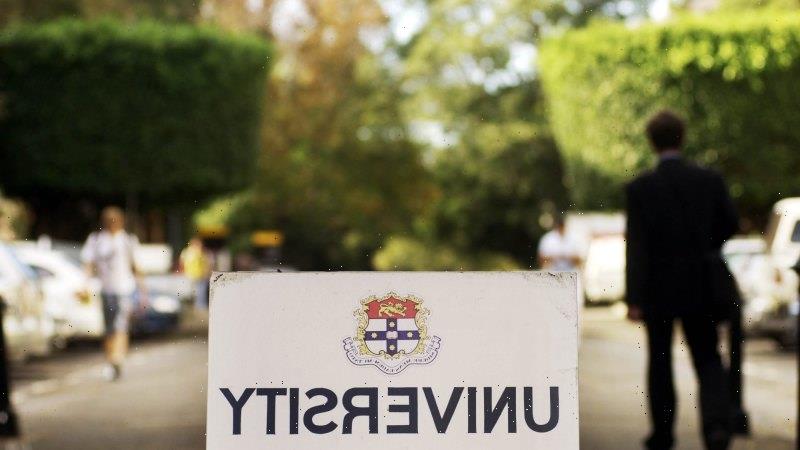A new report argues that the minimum two-year teaching master’s degree should be scrapped and replaced by a revived one-year graduate diploma to entice more people into teaching and help solve a nationwide shortage.
The number of people gaining a postgraduate qualification in education has declined by 23 per cent since states and territories began to phase out the one-year graduate diploma of education in 2014 – a move intended to bring Australia’s qualification requirements in line with high-performing education systems such as Finland’s.
Joel Meadows, a former structural engineer, is embarking on a new career as a physics and maths teacher.Credit:Luis Ascui
The report published by Sydney-based libertarian think tank the Centre for Independent Studies says the two-year mandate is impeding efforts to lift teacher numbers in Australia and doing little to lift teaching standards.
The teacher shortage threatens to disrupt many schools’ plans for 2023, with more than 1800 vacant teaching jobs in government schools advertised online on Tuesday, a volume one principal described as “highly unusual” so late in the year.
The mandating of a two-year postgraduate master’s degree is a major disincentive for mid-career professionals to study to become teachers, as it represents a doubling of student debt, foregone income and time spent juggling work, study and family commitments, the Centre for Independent Studies says.
More than 60,000 Australian teachers hold a one-year diploma, according to the report.
Report author Rob Joseph said the assumption that lengthier degrees produce higher standards was unfounded.
“A longer degree is no guarantee a new teacher is more prepared for the classroom. It’s the quality of time in training, not the quantity of time, that leads to teachers being classroom-ready,” he said.
Universities and regulators can use other measures to ensure the quality of new teachers, such as raising minimum ATARs for course entry, literacy and numeracy tests, and ongoing professional development, Joseph said.
“Taking twice as long as needed to complete a degree means there are fewer potential teachers starting and completing training, contributing to a shortfall of new teachers.”
Teaching standards are set by the Australian Institute for Teaching and School Leadership, and the institute’s deputy chief executive, Edmund Misson, said one year was not enough time to learn how to teach well.
“Supply of teachers is a real concern, and if there are new models that remove some barriers to people studying to become teachers, where people can be working in schools and earning an income while they’re studying, then I think that’s a great innovation that should be pursued,” he said.
“[But] teachers need good preparation, and we don’t think that can be done in 12 months of equivalent full-time study.”
Misson cited the two-year Teach for Australia postgraduate program, in which students work in a disadvantaged school as part of their master’s and earn an income while they study, as one helpful initiative.
Joel Meadows, a former structural engineer, completed his two-year master’s through Teach for Australia this week, during which time he taught VCE physics, maths and science at Manor Lakes P-12 College in Wyndham Vale.
Meadows said he had wanted a job with more family-friendly hours but would not have given up his engineering career to study teaching if he could not earn an income at the same time.
“It would have been hard to lose a salary for a period of a year or two years,” he said.
University of Melbourne’s Graduate School of Education dean, Jim Watterston, said the call to cancel the two-year master’s demeaned the skill of teachers, who must gain expertise in content, pedagogy, wellbeing and supporting students with disabilities.
“You couldn’t do a one-year course to become a doctor or a lawyer,” Watterston said.
“People have been talking about this for the last six to 12 months, that somehow we would be better off if we just made it a one-year course. What it says is, teaching is really easy, and anyone can do it.”
Professor Claire McLachlan, dean of the School of Education at Federation University and president of the Victorian Council of Deans of Education, said several Victorian universities had set up accelerated 18-month postgraduate teaching courses that included being paid to work part-time in a school while studying.
Education ministers will next week consider a new national teacher workforce action plan, which includes ways to encourage more people to switch careers to teaching.
Federal Education Minister Jason Clare said it was hard to switch mid-career, especially when you have a mortgage and children, which was why he has asked his teacher education expert panel to consider options such as paid internships.
The Morning Edition newsletter is our guide to the day’s most important and interesting stories, analysis and insights. Sign up here.
Most Viewed in National
From our partners
Source: Read Full Article

